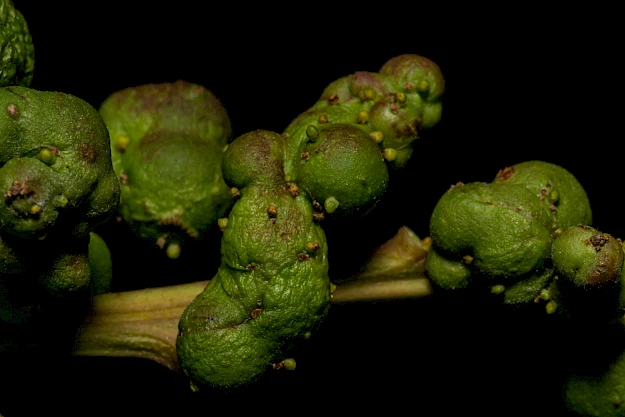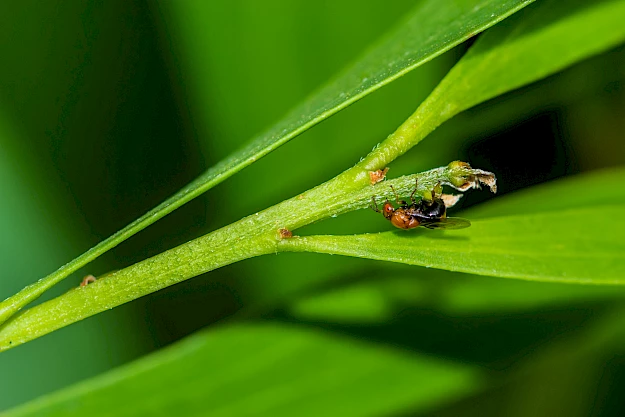UC scientists confirm ecological safety of the first biological control agent released in Portugal for acacia control – a little wasp
The study results show that, with careful planning and monitoring, biological control can be a safe and effective strategy for restoring invaded ecosystems, with minimal impact on native biodiversity.
Research led by the Faculty of Sciences and Technology of the University of Coimbra (FCTUC) has validated the ecological safety of Trichilogaster acaciaelongifoliae, the first biological control agent introduced in mainland Portugal to combat the invasive plant Long-leaved wattle (Acacia longifolia).
The study, led by Francisco Lopez-Núñez, a researcher at FCTUC's Centre for Functional Ecology (CFE), was published in the journal Restoration Ecology and sets a milestone in the rigorous post-release monitoring of biological control agents.
"Trichilogaster acaciaelongifoliae is a small wasp native to Australia that lays its eggs in the floral and vegetative buds of Acacia longifolia, forming galls that disrupt the plant’s ability to reproduce, disperse seeds, and grow," explains Francisco López-Núñez. "After extensive host-specificity testing, this biological control agent was selected and released in 2015 at several locations along the Portuguese coast."
Three years after its release, a team of researchers from FCTUC and the Polytechnic Institute of Coimbra demonstrated, through the analysis of complex food webs, that this highly specialised insect had no direct or indirect negative impact on non-target species.
The study analysed and identified 154 plant species, around 45,000 galls and 11,000 insects on Portugal's central coastline. It also involved the construction and analysis of complex food webs involving plants, galls and parasitoids. The results confirm that, when properly planned and monitored, biological control can be a safe and effective strategy for restoring invaded ecosystems, with minimal impact on native biodiversity.
“A very promising sign is the absence of unwanted effects on other native plants and insects. This represents a pioneering step in the Iberian Peninsula and a significant milestone in building trust in the sustainable use of biological control for nature conservation. The study underscores the importance of long-term monitoring and demonstrates that it is possible to thoroughly assess the ecological interactions triggered by biological control agents,” concludes Francisco López-Núñez.
The scientific article “Three-trophic level food webs support the safety of a biocontrol agent 3 years after release” is available here.


